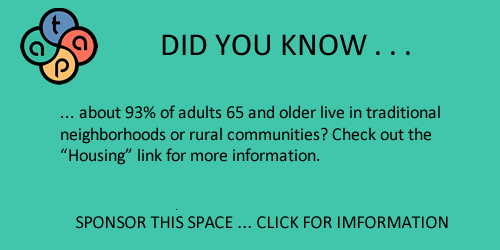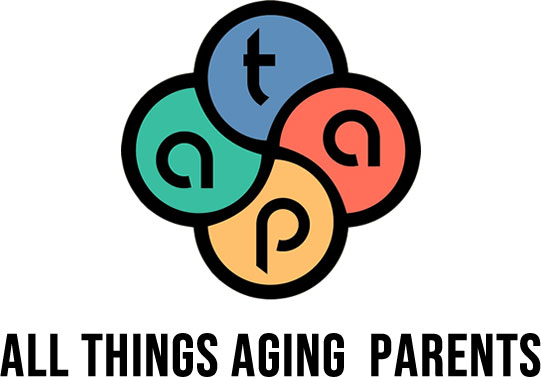Previous Insights
Grief - Before and After
Marianne Smith
I have started this article in my mind so many times. Now it is finally getting down on paper. I could have written snippets about this topic any time within the last five years, but now it really is appropriate. Last week, my mother passed away. She was 101-years-old, in end-stage dementia. Because of my strong faith in Jesus Christ, I believe that she is now fully alive, whole in body and mind, and reunited with my father, and probably dancing through the rose gardens of heaven in the presence of her Savior.
I got the “early warning call” from the Director of Memory Care and the hospice nurse on the way down to the beach. My husband and I had planned a weekend getaway. We knew her passing would be soon, but how soon was impossible to tell. Therein lies the real turmoil – when would it be? We were able to somewhat set aside the tension to enjoy the beach (although it rained the whole weekend, somewhat fittingly), and on the way home, I got the call that she was unresponsive and it was time to call in my family members.
“How could you still enjoy your weekend?” I hear you ask. We’ve done it before. In 2016 we got a call on the way down to the beach that my father-in-law was likely in his last days. We booked a flight on Monday and tried to enjoy our weekend. He lasted another 3 months before he passed. I have lived in the apprehension of my mother’s death for 2 ½ years since my father died. It’s impossible to live your life on hold.
For me, the not knowing how long was the worst part of it. I would ask anybody and everybody, “What do you think this means in terms of how long she’s got left?” and invariably they would reply, “If I’ve learned one thing, it’s to not make any guesses, because they’ll be wrong.” And I’d say, “Yeah, I get that, but how long does she have?” In my mind, I was asking over and over again, “Where is the crystal ball that can give me the answer I so desperately want to know?!” I think it’s the fact that everything about her passing was so far out of my control that I couldn’t even guess at the timing of it that made it so hard. It’s elusive, and a source of grief.
I’ve lived in a state of grief for years. Before you think that’s unhealthy, you need to understand that there are different kinds of grief. Some occur before death, some after. The two that I have been living in are called “ambiguous grief” and “anticipatory grief.” Ambiguous grief is the feeling of loss because things aren’t the same as they used to be. You may grieve the decline of your loved ones – their ability to do things on their own, enjoyment of their favorite pastimes, etc. Anticipatory grief is the acknowledgment that your loved one’s end is imminent or the incremental losses that demonstrate that the end is near.
VeryWell Health describes anticipatory grief this way: “Anticipatory grief, or grief that occurs before death, is common among people who are facing the eventual death of a loved one or their own death. Yet, while most people are familiar with the grief that occurs after a death (conventional grief), anticipatory grief is not often discussed. Because of this, some people find it socially unacceptable to express the deep pain they are experiencing and fail to receive the support they need.
“Anticipatory grief can be similar to grief after death but is also unique in many ways. Grief before death often involves more anger, more loss of emotional control, and atypical grief responses. This may be related to the difficult place—the "in-between place" people find themselves in when a loved one is dying. One woman remarked that she felt so mixed up inside because she felt she kept failing in her attempt to find that tender balance between holding on to hope and letting go.”[1]
WhatsYourGrief.com describes ambiguous grief like this: “In contrast to anticipatory grief, there are times in life when someone we love becomes someone we barely recognize. The person is still physically with us, but psychologically they are gone. There are a range of reasons this can happen. Some of the most common are things like addiction, dementia, traumatic brain injuries, and mental illness. If you have never lived through loving someone in such a situation, this can be hard to understand. The person you love is still there, sometimes they ‘look’ sick, sometimes they don’t. But regardless of how they look, they do things they would never have done, they say things they would never have said, treat you in ways they never would have treated you, and they are not there for you in ways they previously were. This is sometimes referred to as “ambiguous grief” or “ambiguous loss”.”[2]
Grief is hard. Grief is draining. Even if you are a person of faith and have the surety of knowing where your loved one is after they die, grief is sorrowful. But embracing grief deepens us. Acknowledging on-going grief – ambiguous or anticipatory grief – needs to be understood and expressed so that we don’t become isolated and lonely. Everyone understands the pain of grief after a death, but not everyone understands the grief that drags on and on and on before they are gone. But there are those who do. Find those people who will let you walk through the pain without rushing you – those folks are life-giving. And we can all use some of that in our lives.
[1] https://www.verywellhealth.com/understanding-anticipatory-grief-and-symptoms-2248855
[2] https://whatsyourgrief.com/ambiguous-grief-grieving-someone-who-is-still-alive/


The information contained in this website is provided as a service to the Internet community, and does not constitute legal or medical advice. All Things Aging Parents works to provide quality information, but we make no claims, promises or guarantees about the accuracy, completeness, or adequacy of the information contained in or linked to this website. Information should be researched and used in light of the specific circumstances of each case. Because laws and policies are constantly hanging, nothing provided here should be used as a substitute for professional advice.
Senior care is a challenging and constantly changing topic. In order to stay relevant to your needs, ATAP welcomes your comments and suggestions. Please email us at: info@allthingsagingparents.com
All Things Aging Parents helps families during the overwhelming times of changing family dynamics and responsibilities. We don't want to add stress to this process so we offer our information free of commitment. Our sponsors make this possible. Please click here for more information about becoming a sponsor.
Privacy Policy

